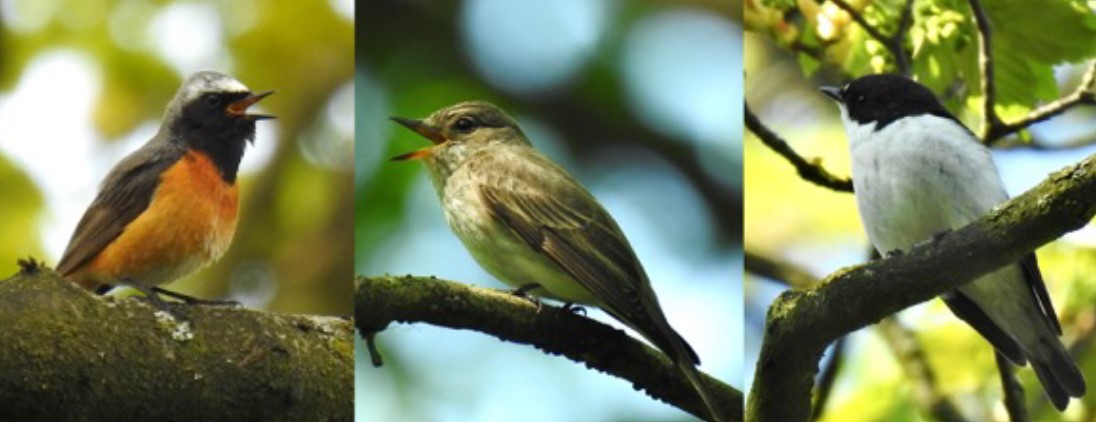The status of migrant woodland specialists Redstart, Spotted Flycatcher & Pied Flycatcher in BCA and other woodlands in Buxton by Rowan Wakefield

Woodland specialist birds are species restricted to or highly dependent on particular
woodland habitats, and as a group have suffered significant declines, whereas woodland
generalists tend to have more stable or increasing populations. Data from the 2021
Woodland Bird Index, shows that populations of woodland specialists are 53% lower than
in 1970.
Appropriate management of woodlands is important for protecting diversity in birds.
Specialists have favoured niche habitats and often require particular woodland structure.
Under-management of woodlands can lead to loss of clearings, glades and rides and
changes in age structure, and is an important cause of decline, alongside woodland
fragmentation. Reductions of deadwood, wet features and invertebrate populations are
further causes of decline. In some situations predation can be a limiting factor. Climate
change can affect breeding times and productivity, and creates issues on migration. All
three species in this report may be affected by issues outside the UK in the birds’ wintering
grounds, but the focus here is local populations and management.
The three species chosen for the report, whilst not the only migrant woodland specialists in
Buxton and the surrounding area, represent Birds of Conservation Concern (BoCC) with
relatively low populations nationally.
Breeding Bird Surveys have been conducted since 2020 in BCA woods, covering all
species in certain years and migrants throughout the period. Where possible, territories of
the three focus species have been revisited to assess breeding success. In 2023, Burbage
Edge Plantation has been studied in addition to BCA woods. The report presents data from
the surveys, and explores ways to improve monitoring and habitats for these species.
To read the full paper click on the link below